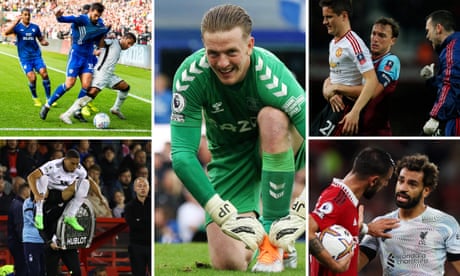Manchester City may have won five English Premier League titles since Manchester United’s last triumph in 2013 but the Old Trafford club are still ahead in Asia. Compared to the famous red shirts, sightings of a City top have been relatively rare in the streets of Bangkok, Kuala Lumpur and Shanghai over the years. It’s starting to change though and in the world’s biggest continent the gap has been closing and now, thanks to Erling Haaland, it is closing quicker than ever.
There are a lot of doubtful numbers put forward by European clubs about their followings out east. In 2015, Chelsea claimed a quarter of a billion Asian fans, three years after United had settled on 325m in the Asia-Pacific region. Yet United have had, along with Liverpool, a base of solid support in Southeast Asian heartlands of Malaysia, Singapore and Thailand due to English football being broadcast there in the 70s and 80s. Then, in the late 90s and throughout the noughties, as the Premier League rocketed in popularity everywhere, United were dominant on the pitch with the likes of Cristiano Ronaldo, Carlos Tevez, Wayne Rooney and Park Ji-sung, and off it with their commercial expertise. This combination brought in fans in new markets such as China, Korea, Japan and India.

Now the story is of United’s decline contrasted with City’s success and a growing following in Asia. While the likes of Kevin De Bruyne, Sergio Agüero and David Silva may be, or have been, world-class, for the first time City have a genuine global megastar in their Norwegian striker. Asian fans of European clubs are often perceived to be more interested in individual players rather than teams and flock to those that win and turn their backs on those that don’t. Haaland helps his new club on both counts.
Liverpool-supporting Thanamahamongkhol Kritikorn of Sporting News Thailand has seen nothing like it. “He’s too good to be hated and even other clubs’ fans respect him,” he told the Guardian. “His popularity is now more than that of a mere athlete and even girls who don’t watch football are asking, ‘Who is this guy?’”
Local City fans agree. “This year, there are a lot of people wearing City jerseys on the streets of Bangkok,” Thailand-based City fan Chutidet Prasarnsange said. “You can’t buy the shirt as easily as you could before and those who do buy it all need Haaland’s name on the back.”
City’s new star is ahead of Cristiano Ronaldo in shirt popularity in India
That is what 20 goals in 14 games does. “Thai City fans expected Haaland to be a great player who would lift the team but we didn’t expect he could make such an impact and become an icon this fast. He’s a phenomenon. All media, all platforms and even other team football fan pages are talking about him. My non-City-supporting friends want to watch City’s games just because of Haaland. He’s everywhere on social media and in a positive way.”
There is a similar story not far to the west in India. “Haaland has pulled plenty into the Indian fanbase, and will continue doing so … he has been celebrated in the Indian sports media.” said Jaidev Tripathy from the Manchester City Delhi Supporters Club, before claiming that City’s new star is ahead of Cristiano Ronaldo in shirt popularity in India. “The demand for Haaland jerseys is high.”
Ian Kwek of Puma Southeast Asia said that there has been a marked increase in sales of Manchester City shirts since last year. “In terms of Haaland’s name-set there has been a very positive response in sales. Based on feedback from our specialist football stores … Man City has been growing in recent years and has been competitive in building its presence against other clubs in the league.”
In China, United are out in front on Weibo, a Twitter-like site and a well-used if crude metric, with 11m followers and Chelsea and Barcelona are close behind. City, however, are fourth with 9.25m, a number double that of Real Madrid and Liverpool. Haaland is big news there too and his own standing has been increased by his move from the Bundesliga to a league with a greater global presence creating a vicious or virtuous cycle, depending on who you support. “Haaland has generated lots of topics on Chinese social media, and Man City and the Premier League’s platform have helped Haaland gain followers in China,” said Beijing-based consultant Bi Yuan.
In Asia, any misgivings about where the money which has turned City into a global player has come from are rarely heard. Indeed, the Abu Dhabi-funded City Football Group’s worldwide stable of clubs is seen as an advantage with excitement whenever a new takeover is rumoured. In India, Mumbai City have become a force and Yokohama F. Marinos are close to the Japanese title. In 2019 third-tier Sichuan Jiuniu were taken over, a Chengdu-based team with huge potential that now has their sights on the Chinese Super League.
These are long-term developments but if Haaland can lead City to new heights on the pitch, the same will happen off it. “They need to keep winning,” said Bi. “This will increase the number of young fans they have attracted in the past few years, and this, in the near future will make them the most popular team in China as most Manchester United fans get older. The real driver for City’s popularity will be winning the Champions League.”
With Haaland leading the attack, the trophy looks closer than ever in Europe – and in Asia, so do Manchester United.





















































